We all know a Chandler Bing in our lives – and no, I don’t mean his funny bone. Chandler is equally known for his phobia of commitment. The mere mention of ‘Mr. and Mrs. Bing’ knocked the wind out of his body. But while all is fun and games in a beloved sitcom’s reel life, the signs of commitment issues in real life are another ball game altogether.
The roots of commitment issues run deep; neglecting them or not taking steps toward a resolution can be highly detrimental to a person’s wellbeing. Moreover, commitment affects each relationship we share – multiple aspects of our lives are impacted by our ability to commit and sustain a connection with others, or lack thereof. A subject as layered as this one is best understood with the guidance of a mental health professional.
We are in conversation with counseling psychologist Kranti Momin (Masters in Psychology), who is an experienced CBT practitioner and specializes in various domains of relationship counseling, to understand the signs of commitment issues and the best way to deal with them. Let us embark on this journey that will make you a self-aware individual and equip you with the right tools to function better in a relationship.
What causes commitment issues?
Table of Contents
Carla, an event manager, is in her 30s, and the fact that she never had a serious relationship bothered her every second of every day. It’s not like she didn’t have the chance to experience a nice, healthy connection. But every time she sabotaged the relationship before it could mature, displaying one of the most common commitment-phobic woman traits. In short, she would dump her partners before they find an opportunity to break her heart, and that too over extremely insignificant matters.
Unable to spot a reason behind such behavior, Carla sought professional help. After a few sessions with her therapist, she could finally see how her parents’ divorce at an early stage of life has left her with this severe scar of trust issues. The path to overcoming commitment issues in a relationship became a lot easier once this insight was unraveled before her.
First things first, to solve an issue, you have to get to the root of that very problem. So, the journey of dealing with a fear of commitment also begins with finding the answer to “what does it mean to have commitment issues in a relationship”. Commitment phobia is a type of anxiety disorder that causes uncertainty that creeps into your head. Not knowing what the future holds unsettles you to the bone.
“What if my partner stops loving me five years down the line?” “What if I am with the wrong person?” “What if he/she is just playing with my feelings?” Such doubts augment the anxiety and commitment issues. Research shows there are four factors of love contributing to a strong sense of commitment – attraction, connection, trust, and respect. If your relationship is lacking in any one of these factors, you may experience several commitment phobia signs.
The fear of commitment is often rooted in past traumas. If you find yourself unsettled by the idea of committing to something/someone, the following list of common reasons behind commitment phobia might help you get to the root of your fear:
- Heartbreak from previous relationships
- Not giving yourself the space and time to acknowledge and process the pain and analyze what went wrong in these relationships
- Fear of repeating the same mistakes or being in another unhealthy partnership
- Unresolved childhood trauma
- Fear of being abandoned and rejected
- A constant craving to achieve something better
- Fear of losing personal and financial independence
- Trust issues
How Do I Know If I Have Commitment Issues?
Now that we have addressed the “what does it mean to have commitment issues in a relationship” question, let’s help you understand if there is a slight trace of commitment phobia in you. Do labels make you uncomfortable? Are you slightly surprised when someone calls you their boyfriend/girlfriend after a few dates? In general, do you have a hard time trusting people? If the answer to these questions is a yes, then you probably struggle with commitment.
As Kranti explains, “Commitment issues aren’t just limited to romantic relationships. This behavior will spill over into other areas like friendships, work relationships, familial ties, and so on. People who fear commitment might suffer from social anxiety disorders and childhood experiences could exert considerable pressure on their adult life.”

If you exhibit the signs of commitment issues, you will find yourself walking on eggshells in all equations. Consequently, you will struggle with being your most authentic self. Let’s understand this better with an example. Julie was raised by a toxic mother and this left her with a lot of emotional baggage.
Used to being gaslit and controlled, she now found it difficult to not second-guess people’s intentions. Her romantic relationships always ended because of her insecurity, which was rooted in unresolved trauma. But she couldn’t understand what this hotchpotch of symptoms meant. It was only when she sought out therapy did she learn that these were signs she is afraid of commitment.
While there is no sure-shot formula for knowing if you have commitment issues, there is something you can do. We have curated this list of 9 signs that can help you assess your situation better. Go through them with complete honesty and see whether they are something you resonate with. The signs of commitment issues are a hard pill to swallow but the sooner you accept them, the better.
What Are The Signs Of Commitment Issues?
A close friend recently asked, “Why do I have commitment issues with everything? Nothing is straightforward for me. I’m always overcomplicating things by going in the wrong direction.” Her question couldn’t be answered unless she knew what her problem areas were. The best way to learn our limitations is by educating ourselves. Today, we will take a step in that direction by looking at these signs of commitment issues.
If there is congruity between your behavior and these signs, look at the silver lining. You will now know where the issue lies. Healing and recovery are always easier when a person is not in denial. Read with an open mind and hold the intention of getting better. Let’s begin our journey with the wise words of Ralph Ellison, “When I discover who I am, I’ll be free.”
Related Reading: 12 Tips To Get Over Commitment Issues
1. Hurt me not
One of the most evident signs of someone having commitment issues is a perpetual fear of getting hurt in the relationship. Kranti explains, “Commitment phobia can stem from previous bad experiences – if your ex-partner had betrayed you, if your childhood experiences were traumatic, you will not want to put yourself in that vulnerable place again. There will be a constant attempt to protect yourself from getting hurt.”
This happens quite often with commitment issues in females. Having your guard up at all times is a typical commitment-phobic woman trait because it seems like the natural thing to do. But in the process of fortifying yourself, you will become averse to the prospect of a relationship and everything that it entails. Just FYI, there are healthier ways of looking after yourself like drawing emotional boundaries and balancing independence in a romantic space.
2. Hot mess – Dating someone with commitment issues is hard!
What’s the word we’re looking for? Self-sabotage. The moment you feel your partner inching closer to a committed space, you will inadvertently do something to sever the connection. It could be anything from acting selfishly to cheating, withdrawing affection, being unnecessarily aggressive, and so on. While it seems ridiculous (and frankly unbelievable), this is precisely what a commitment-phobe does.
This is visible in the most minute ways possible. Think very carefully; when a partner makes a gesture like giving you the key to their apartment, what is your reaction in the days that follow? Chances are, you begin acting strangely. Making inappropriate jokes, trying to explain the pointlessness of their gesture, and not using the key might be a few of the things you do. With your self-sabotaging behavior, you’re the Titanic and the iceberg too.
3. Shallow waters are signs of commitment issues
Keeping it casual, are we? Kranti says, “Commitment-phobic people like keeping things light and even superficial. They avoid building deep and meaningful connections. Most of the time, they will want to engage in activities that are fun and casual. They will prefer relationships that don’t have labels and are open. Being someone’s boyfriend or girlfriend won’t seem like a good idea to them.”
If your go-to relationship style is no-strings-attached or friends-with-benefits, you’ve got some thinking to do. Being Joey Tribbiani or Charlie Harper is mad fun until it hits you that they were exemplary cases of commitment issues in men. Ask yourself what you’d opt for when given a choice between a crazy date at a karaoke bar and an indoor romantic date. Hmmm.
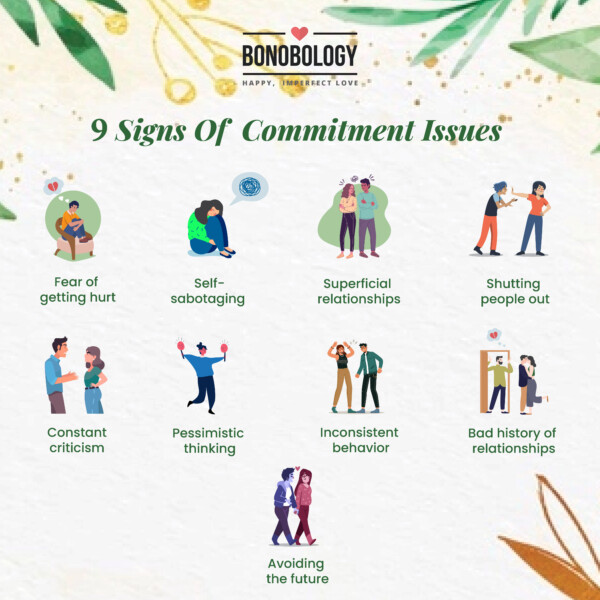
4. Closed for maintenance
More like permanently closed for maintenance (unless you find a way to resolve your issues, but more on that later). One of the biggest signs of commitment issues is emotionally shutting people out. Your auto-mode is closing the shutters on emotional intimacy.
If a partner attempts to connect with you on a deeper level, you close all doors and don’t let them in. Maybe you’re worried that the information you divulge will be used against you. Or maybe you think that sharing will oblige you to stick around in the relationship for longer.
Either way, you are not comfortable being open. Very often, this might make your partners think that they are dating an emotionally unavailable man or woman. A consistent complaint will be your lack of communication and trust. Because if you don’t let your partner see your vulnerable side, they’re bound to take it personally. Dating a commitment-phobe is no piece of cake.
5. Critic of the year
If there was an award for being the world’s biggest pessimist, you wouldn’t expect to win it. As someone who’s exhibiting the signs of commitment issues in life, you likely adopt a very negative and critical line of thought about relationships, romance, love, and partnerships. Statements like “Love is overrated” and “I’m better off being single” will be your staple. If you happen to get in a committed relationship, you will be harsh on its lows and indifferent to its ups.
Perhaps, there will be a tendency to anticipate disaster. The minute things go wrong, you’ll think “I knew it all along” or “this was bound to happen”. This propensity will spill over into other areas and you might find yourself criticizing your partner excessively. When you both argue, do you use phrases like “This is exactly why I prefer to be by myself”? You’re displaying a classic case of commitment issues.
Related Reading: How To Know If She Is The One – 23 Clear Signs
6. An inquisitive soul
No, this is not a compliment. We know you often wonder, “Why do I have commitment issues with everything?” But that’s not the only time you’re a curious cat. When it comes to relationships and commitment, you’re very quick in asking negative questions: What’s the point of all this? How long will it even last? Why make future plans when things can go wrong in the meanwhile? How sure can I be of this person?
Kranti points out, “These individuals express doubt very easily. They’re suspicious of commitment as a whole. The ‘what-ifs’ reign supreme when a commitment-phobic person thinks of a long-term relationship.” Overthinking is usually attributed to commitment issues in females. And more often than not, these questions are like dominoes – one follows the other. But hey, we hope we can pop your thought bubble soon.
7. Never consistent – Signs of someone having commitment issues
Ah, this one is important. If you fear getting tied down to a person, you will be inconsistent in your behavior toward them. Bouts of passionate love might be followed by spells of ghosting. You’re hot and you’re cold and your partner will get tired of these whimsical switches. Little do they know about the interior monologue you’ve got going. I’m sure your feelings are genuine – you just have a hard time following up on them with action.
When the fear of commitment takes over good sense and love, you will sprint away into the horizon of singledom and its advantages. But when you’re reminded of how beautiful a relationship can be, you’ll run right back into your partner’s arms. Needless to say, such behavior is not sustainable. It gets exhausting for both parties involved and if we’re being honest, it is a little unfair to the one you’re dating.

8. Bad history
It’s time to take a trip down memory lane. Think back to your previous relationships. Were they short-lived? Did they meet an ugly or frustrated end? Do your exes have many complaints against you? A bad dating history is indicative of a fear of commitment. You only have to introspect in retrospect to get a confirmation of your tendencies.
My friend Mark reached this conclusion a few months ago. He realized that his string of one-night-stands, flings, and one short yet intense relationship was proof of his commitment phobia. This realization hit him right where it hurt but everyone’s glad he finally saw it. (Because commitment issues in men are usually more evident.) A throwback Thursday or flashback Friday can help you see things in a better light.
9. Livin’ in the moment
No, this is not a compliment either. This is one of the signs of commitment issues. You know there’s trouble when someone refuses to talk about where they’re headed. Kranti says, “Commitment phobia doesn’t allow a person to invest in the future. They will not make plans or take decisive action with their partner. Their focus will lie on the here and now. Questions like “where is this going” or “how do you see the future” will be avoided at all costs.”
When you’re afraid of thinking long-term, you’ll do anything to avoid ‘the talk’ with your significant other. And in case you’re cornered into having that conversation, your response will be something like “Who knows what the future holds?” (This is a classic case of commitment issues in men). This will definitely get frustrating and worrisome for your partner after a while.
Well, how did you fare? Did you see yourself in these signs of someone having commitment issues? If the answer is a no, you’ve got nothing to worry about. But if the answer is a yes… you’ve still got nothing to worry about. There is nothing that can’t be overcome with hard work and perseverance. We are going to do some serious troubleshooting and help you get through this problem. It’s time to proceed to the 5 stellar ways of dealing with a commitment phobia.
Related Reading: 15 Signs A Commitment-Phobe Loves You
5 Ways To Deal With Fear Of Commitment
Madeleine L’Engle wrote, “If we commit ourselves to one person for life, this is not, as many people think, a rejection of freedom; rather, it demands the courage to move into all the risks of freedom, and the risk of love which is permanent; into that love which is not possession but participation.” Understanding this school of thought is a long way ahead for a person who is afraid of commitment. While you might not embrace the idea of being with someone for life, you can learn to see some merit in it.
Failing to sustain one single relationship may put you through a feeling of worthlessness and inadequacy. In fact, depression and commitment issues often go hand-in-hand. Remember, not wanting to be in a committed relationship consciously is a completely different matter. It’s an individual’s personal choice. But as long as you want something substantial but one or several unresolved issues are holding you back from going that extra mile, it’s time to make some changes.
Here are 5 ways of getting over commitment issues. You can implement them at your own pace. Maybe customize an approach to recovery because there is no one-size-fits-all method. For instance, overcoming commitment issues in females might require a different tactic than in males. Be open to trying each one and don’t dismiss any of them – step out of your comfort zone. Now that you’ve been armed with these words of advice/caution, go forth and read.
1. How to deal with signs of commitment issues in life? Seek professional help
Kranti says, “The best way to overcome a fear of commitment is talking about your issues and learning where the fear actually stems from. Reaching out to a counselor is a good idea. You can opt for individual therapy and work on things or go for relationship counseling with your partner. Either way, you will have solid guidance and support. The process will demand time and energy but it will be worth it.”
Overcoming commitment issues in a relationship is a long trial that might test your patience but it’s not impossible with proper guidance. Countless individuals grappling with commitment have emerged stronger after seeking support from the mental health community. At Bonobology, we offer professional help through our panel of licensed therapists and counselors. You can analyze your situation better and embark on the path of recovery with a little aid and direction.

2. Take baby steps
You have to ease into it. Yes, this involves stepping out of your comfort zone greatly but it is also the most effective way of overcoming a fear of commitment. Baby steps like leaving a toothbrush at your partner’s place or spending a few nights at their place each week can be good for you. You can’t expect growth without at least making an effort.
Don’t force yourself into being the most committed person there ever was. Let the transformation flow spontaneously and wash off your commitment phobia signs one by one. Plus, being with an empathetic and understanding person can make all the difference. If your partner is aware of your commitment issues in a relationship and still chooses to be with you, the future may not look so uncertain to you after all. Wait up, the right one is just around the corner!
Kranti explains, “When a commitment-phobic person is trying to get used to the idea of a long-term setting, their partner has to be equally supportive and patient. Dating someone with commitment issues is certainly challenging. A lot of internal work and conflict are at play. But keeping up the effort will surely yield results. As they say, slow and steady wins the race!”
3. Communicate openly
Honesty goes a long way in dealing with commitment issues. Even more so when you couple it with transparency. When you exhibit the signs of commitment issues, be sure to tell your partner in a gentle and forthcoming manner. Explain best as you can the reasons behind your problem and discuss a course of action that works out best for everyone. Teamwork can help you prevent any future problems.
It will facilitate an understanding between you two – your better half will try and step into your shoes for a moment. This will make things easier for you too. There are many communication exercises for couples that can help you in this hour of need. Speak from the heart and all will be well. This is all the more important for the men reading this, who may have a harder time being expressive. No wonder commitment issues in men take a while to resolve.
4. Try out a single space if you’re showing the signs of commitment issues
While this seems counterproductive, it might work in an extreme case of commitment phobia. And when we say single space, we MEAN a single space. Hook-ups are a strict no-no. Steer clear of any attachments whatsoever and get comfortable by yourself. Take this time to introspect and make amends in your life. It is up to you if you do this through therapy or otherwise.
You could also occupy yourself with other pursuits like work, hobbies, friends, family, etc. Healthy individuals make healthy relationships – become the best version of yourself before sharing your life with someone else. A little me-time will bring peace, security, and self-love in abundance if you’re exhibiting any signs of commitment issues in life.
5. Practice mindfulness
You don’t have to be spiritual to give these practices a shot. Mindfulness practices such as journaling, deep breathing, and focus exercises are aimed at striking the balance within; they bring you to a state of inner peace and consciousness. Writing in a journal can make you a self-aware individual while deep breathing and focus exercises can calm any turmoil physically and mentally. These practices can be highly beneficial antidotes to commitment issues in females. They are a great way of quelling anxiety and answering a very important question – why do I have commitment issues with everything?
Key Pointers
- Childhood trauma, fear of abandonment, trust issues, or a bad breakup may contribute to fear of commitment
- A person with commitment phobia is afraid of being hurt and ends up self-sabotaging their relationships to avoid any deeper emotional bonding
- They prefer to keep their romantic equations low-key, more like a no-strings-attached connection
- They would display whimsical hot and cold behavioral traits in a relationship
- Clear communication and a mindful lifestyle could help you overcome this phobia
- Solely focus on yourself for some time and seek professional guidance if required
You now know everything from the signs of commitment issues to ways of overcoming them. This knowledge should help you better your equations – romantic and otherwise. We hope we gave you the right guidance in this hour of need. Do let us know in the comments section how things turned out for you. We’re always glad to hear from our readers!
Your contribution does not constitute a charitable donation. It will allow Bonobology to continue bringing you new and up-to-date information in our pursuit of helping anyone in the world to learn how to do anything.



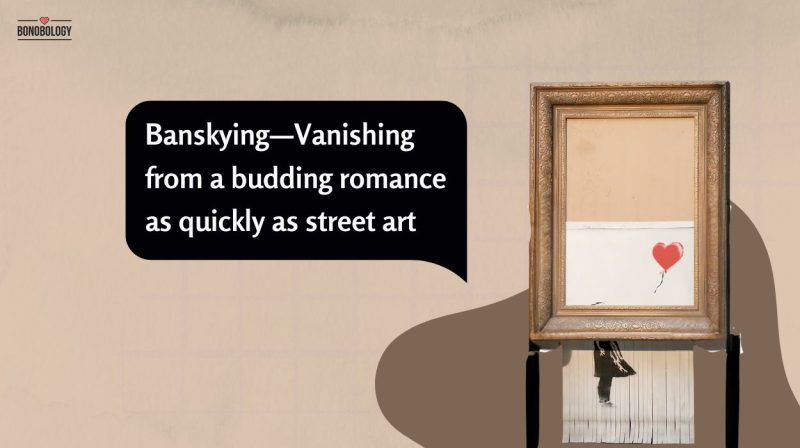
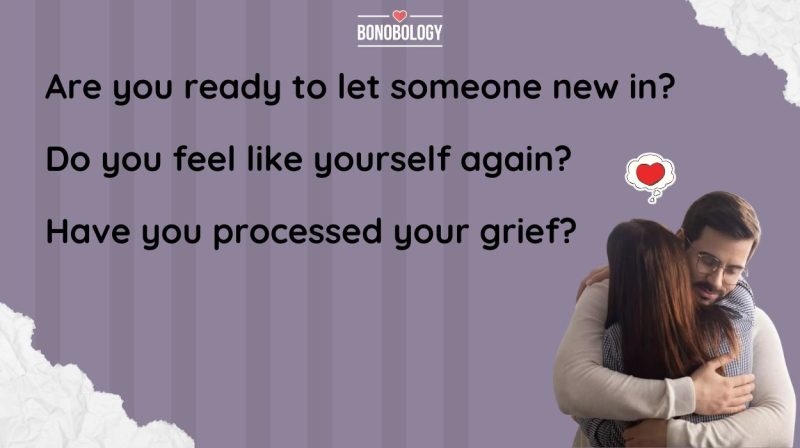
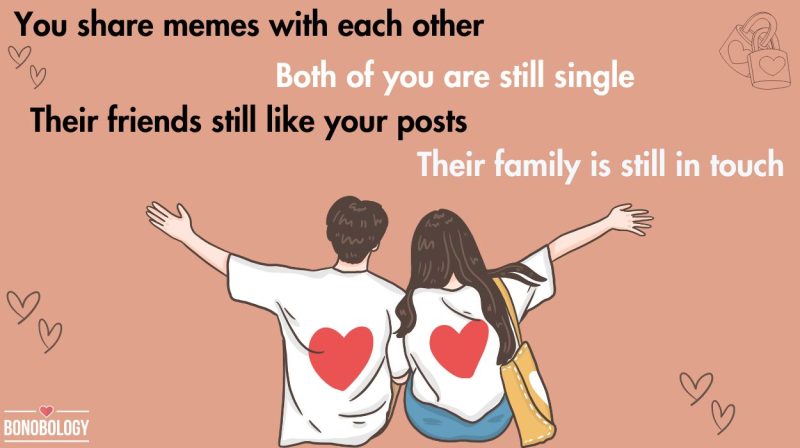














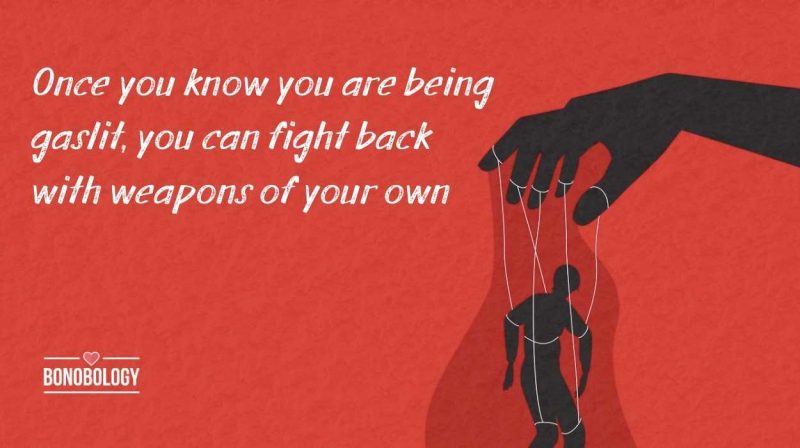


Featured
Banksying In Dating: What It Means and How to Recognize It
Am I Moving On Too Quickly After Death Of Spouse—How To Decide
15 Signs You’ll Get Back Together With Your Ex
How To Get Over Trust Issues — A Therapist Shares 9 Tips
Learn How To Forgive Yourself For Hurting Someone You Love
How To Find Peace After Being Cheated On — 9 Tips From A Therapist
How To Deal With A Cheating Husband
35 Disturbing Signs Of Gaslighting In A Relationship
What Is Narcissistic Ghosting And How To Respond To It
‘My Husband Starts Fights And Then Blames Me’: Ways To Cope
How To Rebuild Your Life After The Death Of A Spouse: 11 Expert-Backed Tips
My Husband Died And I Want Him Back: Coping With Grief
“Am I Unlovable” – 9 Reasons You Feel This Way
11 Signs Your Girlfriend Was Sexually Abused In The Past And How To Help Her
Coping With Breakups: The Must-Have Breakup Apps For Your Phone
15 Signs You Are Wasting Your Time Trying To Get Your Ex Back
Why Are You Obsessed With Someone You Barely Know — 10 Possible Reasons
33 Phrases To Shut Down Gaslighting And Silence Gaslighters
The Emotion Wheel: What It Is And How To Use It To Build Better Relationships
The Role Of Supportive Relationships In Addiction Recovery